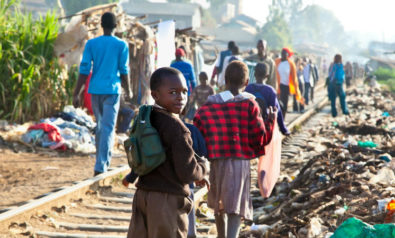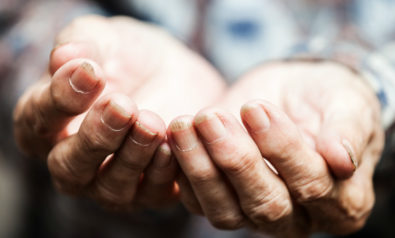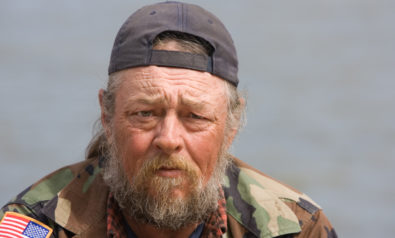Despite the city government’s efforts to provide affordable housing, NYC is still struggling toprovide for a growing homeless population.
In spite of its inhospitable weather and soaring cost of living, New York City is the primary homeless hub in the Northeastern United States. Approximately 64,000 of the city’s 8 million inhabitants are homeless, living in crowded shelters or roughing it on the streets — more than there have been since the Great Depression. Of the city’s homeless, 57% are African-American, 32% are Latino and only 8% are Caucasian. Compared to the city’s overall demographics – 44% Caucasian, 26% African-American and 27% Latino — these statistics paint a picture of persistent social inequality.
Mayor Bill de Blasio has taken steps to build affordable housing, pledging 750 new apartments per year. De Blasio is turning a tide set in motion by his predecessor, Michael Bloomberg, who prevented the New York City Housing Authority (NYCHA) from giving priority to homeless families and children and gave preference to for-profit shelters. This had a catastrophic effect on the city’s unhoused population. The year before Bloomberg’s policies went into effect, NYCHA provided 3,500 apartments to low-income or homeless families. In 2013, 95 apartments were provided. Homelessness skyrocketed during Bloomberg’s 11 years as mayor: from 32,000 in 2002 to 52,000 in 2013. Though de Blasio’s efforts are welcome, other elected officials and homelessness advocates are pushing him to increase his quota to 2,500 new units a year.
Despite the city’s efforts to provide housing, most of the homeless men and women interviewed by Fair Observer preferred sleeping outside unless the cold prevented it. Jacob Straus spoke to people living on the streets of New York about the challenges of their daily lives.
A man and a young woman sitting in a doorway. The man is dark-skinned, wearing all black. He’s wearing a do-rag, a baseball cap and blue-tinted reflective sunglasses, with a cross around his neck. The girl is wearing a tank top and shorts. They’re both tattooed. She has a cardboard sign.
Straus: What’s your name?
Anonymous: Anonymous.
Straus: Are you homeless?
Anonymous: Yes.
Straus: How long have you been homeless?
Anonymous: Five years.
Straus: Always in New York City?
Anonymous: No.
Straus: Where’d that start?
Anonymous: Transient.
Straus: From where?
Anonymous: California.
“Oh, you’re young and you’re white and you’re female, why aren’t you in college, why aren’t you making six figures, why aren’t you doing this?” They don’t even understand how it is.
Straus: What other cities besides New York have you been in?
Anonymous: I really… it would take me a couple hours. I’ve been to every state except like three.
Straus: How long have you been here?
Anonymous: Like a month.
Straus: How have you found it comparatively?
Anonymous: It has its pros and its cons.
Straus: Like what?
Anonymous: Well, for one, people are a lot nicer here than the stereotype. Which is rather amusing to me, because you go anywhere else in the country, and all you hear is “New York this, New York that, everybody’s rude and stuck up.” And then you get here and they’re not even like that. And then you’re just like, “I wonder why they got that. Where that came from.”
Straus: What’s a con?
Anonymous: Lots of businesses. Lots of things to do. Even if you don’t got money, there’s stuff you can do to entertain yourself.
Straus: Why are you homeless? What happened five years ago?
Anonymous: It’s mostly lack of income. Not able to go to college ’cause I got denied financial aid for not being a resident for five years. La da da da da. And I was like, well, if I’ve got to be homeless, I might as well travel. Do something worthwhile with my time.
Straus: Have you been traveling alone?
Anonymous: On and off. Sometimes you meet other travelers along the road and you travel together until you hit certain points.
Straus: You’ve been transient, so you haven’t really explored any one city for too long, but what have you found community-wise? Are there networks?
Anonymous: NYC has a lot of services for homeless people. There are lots of shelters and food services and churches that actually try to help. Which is something not a lot of cities offer. Most cities are just like, “Uh, you’re not one of the 1%, go f**k yourself. Go get a job! Go be a lawyer!”
Straus: What services do you use?
Anonymous: Sometimes I go to churches to sleep. They offer food. It’s really good in these kinds of cities where things are like four times as expensive for legitimately everything. Sometimes you’re not able to make enough during the day, but you don’t have to worry about food and getting a place to sleep, so it takes a lot of the stresses off.
Straus: Where do you usually sleep?
Anonymous: Usually in the churches. They offer beds, so that’s always a nice thing.
Straus: On an average day, thousands of people walk by you. What’s the reaction most people have?
Anonymous: Honestly most of them are too stuck up to even look, but some of them are still humble enough as human beings to acknowledge my existence.
Straus: What percent would you say acknowledge you?
Anonymous: About 40%.
Straus: How do you think being female and homeless is different? Is it harder, or easier?
Anonymous: What I’ve noticed with me is people seem to expect more because of my race and being female. “Oh, you’re young and you’re white and you’re female, why aren’t you in college, why aren’t you making six figures, why aren’t you doing this?” They don’t even understand how it is. A lot of these families are born into middle or upper class, so they don’t know the struggle, they don’t understand it.
Straus: What are your plans, for the next few days, for the next month, for the next years?
Anonymous: Honestly in a week I’m going back to California. I’m actually going to try getting an apartment. I realized attempting to do those things in my home state will be a lot easier, ‘cause there’s usually like a 5-year waiting list if you’re not from there, but being the fact that I was born and raised there should make things a lot easier to get services and help from my own state.
Straus: How are you getting back there?
Anonymous: I’m taking Amtrak.
Straus: That’s an expensive ticket.
Anonymous: I know, I’m not paying for it.
Straus: Who’s paying for it?
Anonymous: Actually there’s something called the Traveler’s Assistance Program that helps people one time. Like homeless people, if they have a home, and they can verify that someone is going to give you a place to say, they’ll cover it. But it’s a once thing.
But based on being homeless, you will only know what it really is, what it’s all about, unless you experience it yourself. People tend to take things for granted, the little things in life. What happens when there is no more money?
Straus: You can’t just get free rides anywhere.
Anonymous: Right.
Straus: Who’s your friend? Did you guys just meet?
X: We met in New York City.
Straus: How long have you known each other?
X: A few weeks. Probably about two weeks.
Anonymous: Two weeks.
Straus: What’s your name?
X: People know me as X.
Straus: Are you also homeless?
X: Sort of.
Straus: On and off?
X: Drifter. I’m a drifter.
Straus: Like her, everywhere, or mainly in New York?
X: I travel, you know, other states, but I really don’t have words. It is what it is. Self-explanatory. Not much to explain. We already know where the problem is.
Straus: Where’s the problem?
X: The ones that are in control.
Straus: So what do you think needs to happen?
X: They need to all be removed.
Straus: Total blank slate?
X: [Nods]
Straus: How do you think we can do that?
X: I think at this moment it’s going to be very impossible. They like to do the bad instead of the good. They’re all for themselves. They’re selfish. While the rich get richer, the poor get poorer. They eat lobster while you eat crumbs. We work hard so they can build their empire.
Straus: How long have you been on and off homeless?
X: I just decided to take myself off the grid. I was given a name, I got a social and all that, but it remains anonymous. You can just know me as Mr. X. Everyone know who I am. If you’ve seen me you know who I look like. Other than that, right now, I’m on vacation. Welcome to the living room: 34th St and 8th Avenue. You can see everybody, Russia, Morocco, Argentina.
But based on being homeless, you will only know what it really is, what it’s all about, unless you experience it yourself. People tend to take things for granted, the little things in life. What happens when there is no more money?
Anonymous: Like air conditioning! Yuppies really don’t care about air conditioning. But I bet if you stick them out in a desert for like an hour, and then put them in the air conditioning, they’d be like, “Oh my f*****g god, this is what it feels like? I had this the whole time and didn’t know?”
X: But um, that’s the truth. They will never know. The tables will one day turn, and they will understand. But they will never know, or have any type of knowledge of how to survive here. They will one day come to me and ask, “How did you do it?” There’s one above watching all, and one below listening.
This world, there’s bad and good. And remember: Good always wins. That’s why I don’t have to worry about nothing. I’m already rich. … Stay positive, that’s my moral. If you have morals and values, you’re an old-fashioned American, you have class. But if you want to be like the president…
Anonymous: I don’t know why you’d want to be like the president.
X: ‘Cause everybody looks up to him.
Anonymous: I don’t want to be president. That job sucks. No matter if you do good or bad, everybody’s going to hate you anyway. Every decision you make is the wrong decision, to someone. Except he can do something I can’t do: He’s good at golf.
X: While people die, he’s gonna go play golf.
Anonymous: We’re not the world police. People die every day. Cry me a river, build me a bridge and get the f**k over it.
Straus: Can you guys tell me – I understand if you don’t want to talk about this – the worst thing that happened to you on the streets. I’ve heard some horror stories.
Anonymous: Honestly, I don’t have any horror stories, other than the fact that cops tend to harass and steal from the homeless.
Straus: Like what?
Anonymous: Like physically abuse. Alright, this one time I was in Philly, and we’re standing there, about to cross the street. This off-duty cop literally stops his car in the middle of the street, with a green light, pushes my friend Twitch into the street, and then yells at him, telling him if he doesn’t get the fuck out of the street he’s going to arrest him. That’s just one instance. Here in New York, they get f****d with in Union Square just for sitting down. All the time. They’ll just like random search you and take your s**t. Not even illegal stuff, just stuff that they want. They’ll take it form you and put it right in their pocket and walk away like it didn’t happen.
Man wants power. How you get power? Control. Corporations. Warehouses. What happens to the homeless people?
X: I’ll tell you the worst thing that happened to me. It was the very first time when they gave me that look, “When are you all gonna die already?” That look. When they could give you that look and they’d be like, “You are a parasite. You are nothing.” Also the look, “You should go back to where you came from.” Now the thing is, I’m wondering why they would say something like that, when they came in three boats, and America was built on fraud. They robbed my families and my ancestors. They raped and murdered my brothers and sisters. And they tell me to go back to the hole I came from.
Straus: Are you Native American?
X: I’m Taino Indian.
Anonymous: And we think we can pay them back by giving them money from casinos.
X: No, no, it’s like this.
Anonymous: We killed all your people, but here’s a casino!
X: That was the past … Yes, it has everything to do with me, because it’s a cycle. That’s my blood, that’s my ancestors. I’m the outcome of all that. In the end, they took all the gold, they found out the secret how to make corn on the cob into Redenbacher popcorn. I believe Thanksgiving is not a day of thanksgiving where we cut turkeys and we have a nice feast and then the next day we all slaughter each other. Thanksgiving is a massacre. Just like every other holiday. Like Christmas is all about money. If you have money in your pocket, then that is your god. And if that is your god, just to let you know, money can burn too.
Straus: You’re wearing a cross. Are you religious?
X: No.
Anonymous: [Laughs]
Straus: Why the cross, then?
X: Religion and belief is two different things.
Straus: So you believe, then?
X: I’m a firm believer.
Straus: In Jesus Christ?
X: Well, Jewish people call it Jeshaw [sic.]. Some people call it “prophet.” Whatever you want to call it. There is one that is supreme. And he can die. … And every living creature has a story to tell until we cross lines with destiny. And every man has their own destiny. Man wants power. How you get power? Control. Corporations. Warehouses. What happens to the homeless people? And the question is why are they building secret concentration camps?
Anonymous: They’re not a secret.
X: Well, secret society, Illuminati. Everybody knows they’re around, they just don’t know where they at.
Anonymous: Actually, we do know where they at.
Straus: Where are they?
Anonymous: They’re building one out in LA.
Straus: A concentration camp?
Anonymous: Well, they’re “working camps” for homeless people. They’ve actually been starting to build them and eventually they’re going to sweep the streets and put all the homeless people can either willingly go to this “working camp” or they can go to jail.
X: As long as you got money, as long as you got dead presidents like Washington and Roosevelt, Franklin, you cannot be touched. You be like the Great Gatsby. Welcome to New York.
The views expressed in this article are the author’s own and do not necessarily reflect Fair Observer’s editorial policy.
Support Fair Observer
We rely on your support for our independence, diversity and quality.
For more than 10 years, Fair Observer has been free, fair and independent. No billionaire owns us, no advertisers control us. We are a reader-supported nonprofit. Unlike many other publications, we keep our content free for readers regardless of where they live or whether they can afford to pay. We have no paywalls and no ads.
In the post-truth era of fake news, echo chambers and filter bubbles, we publish a plurality of perspectives from around the world. Anyone can publish with us, but everyone goes through a rigorous editorial process. So, you get fact-checked, well-reasoned content instead of noise.
We publish 2,500+ voices from 90+ countries. We also conduct education and training programs
on subjects ranging from digital media and journalism to writing and critical thinking. This
doesn’t come cheap. Servers, editors, trainers and web developers cost
money.
Please consider supporting us on a regular basis as a recurring donor or a
sustaining member.
Will you support FO’s journalism?
We rely on your support for our independence, diversity and quality.














Comment